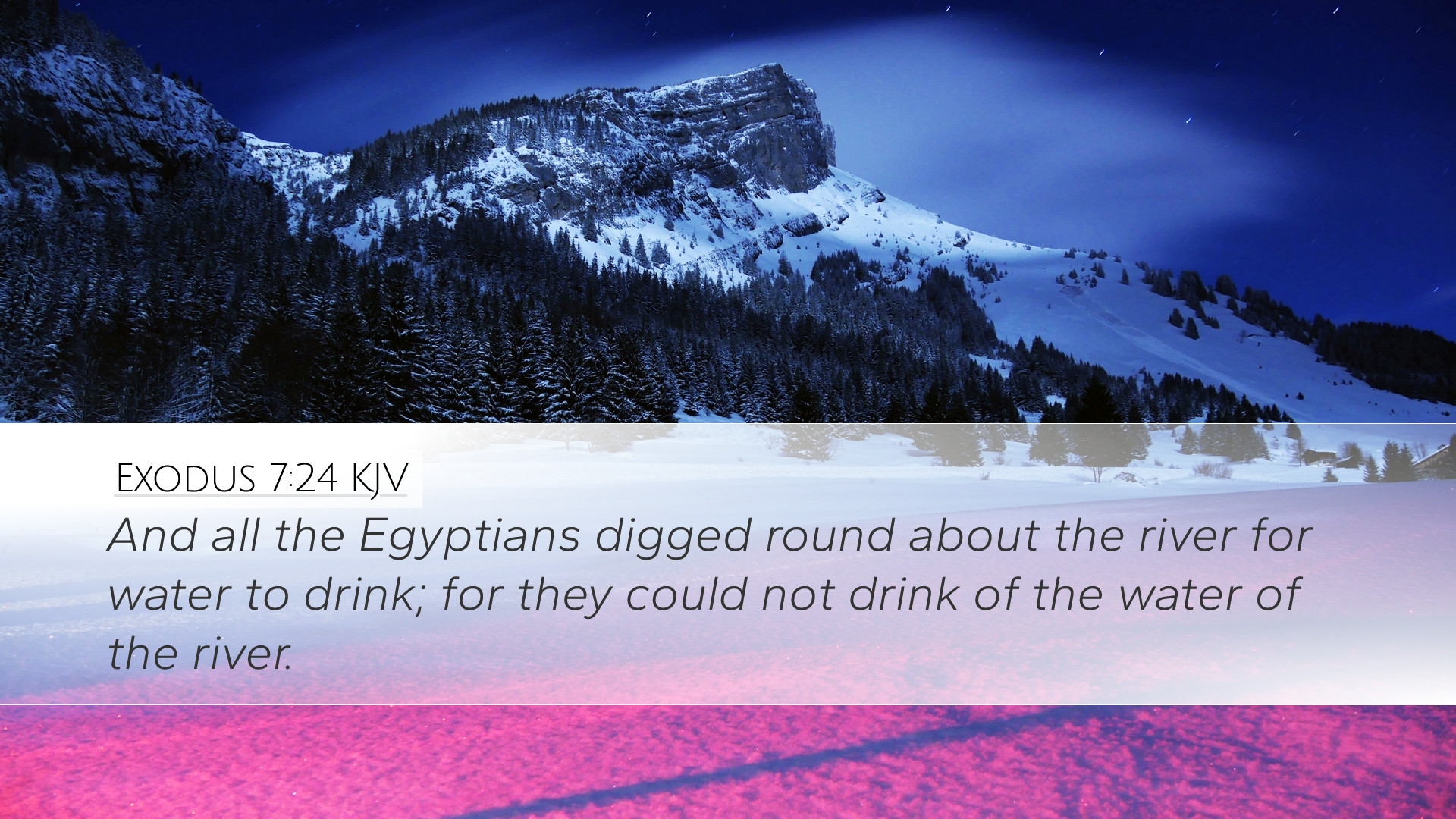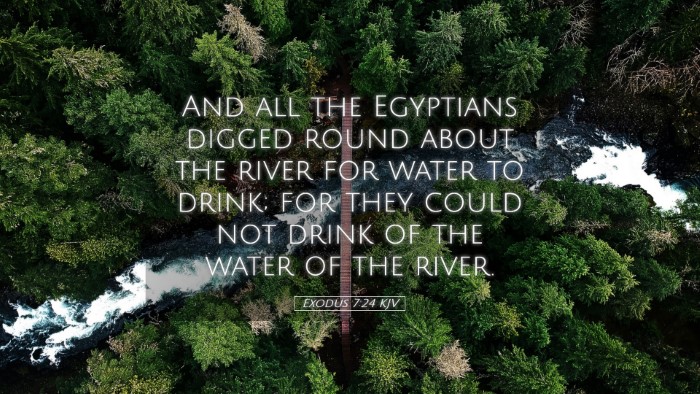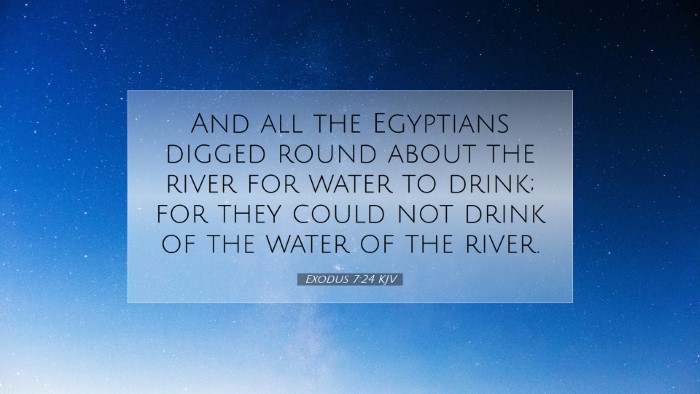Exodus 7:24 - Commentary
Verse: "And all the Egyptians digged round about the river for water to drink; for they could not drink of the waters of the river."
Contextual Background
The scene presented in Exodus 7:24 occurs during the early stages of God's judgments against Egypt, particularly the first plague, where the waters of the Nile were turned to blood. This event is pivotal not only in the narrative of the Exodus but also in demonstrating God's authority over the Egyptian gods and their inability to provide relief to their people.
Commentary Insights
Matthew Henry's Commentary
Matthew Henry emphasizes the severity of the plague, noting how the Egyptians' response highlighted their desperation. The act of digging around the river signifies the recognition of the dire situation, as they could not rely on their usual source of sustenance, the Nile. He reflects on the futility of their efforts, stating that no amount of human toil could remedy what God had made unpleasant. This demonstrates a recurring theme in Scripture: God’s sovereign control over nature and the futility of human endeavors when opposed to divine will.
- Desperation: The Egyptians' actions reflect profound human desperation. Digging for drinkable water reveals their utter dependence on God’s provision and their inability to save themselves from divine judgment.
- Judgment: Henry highlights this event as a judgment not merely against the Egyptians but also against their worship of the Nile, acknowledging God’s supremacy over their false gods.
- Lesson in Dependency: The passage serves as a reminder for believers today: when the source of life is compromised, we must turn to God for our needs and recognize our vulnerabilities.
Albert Barnes' Notes
Barnes interprets the verse with a focus on the deeper spiritual implications of the Egyptians’ actions. The digging for water indicates a frantic search for relief that ultimately proves to be ineffective against God’s decree. His commentary underscores the reality of divine judgment and the natural consequences that follow a nation that turns away from God’s ways.
- Symbol of Judgment: Barnes asserts that the river represents life and sustenance, and its transformation foreshadows the greater judgment against Egypt for their oppression of Israel.
- Spiritual Paralysis: The effort of the Egyptians can also reflect spiritual paralysis – their inability to recognize God’s hand in their suffering contributes to their continued plight.
- Exhortation to Repentance: Barnes calls upon readers to learn from this passage the importance of turning to God in repentance when faced with the consequences of sin.
Adam Clarke’s Commentary
Clarke provides insight into the physical and spiritual ramifications of the Egyptians' actions as they sought water. He notes that this was not only a direct result of the plague but also an illustration of the broader spiritual truth regarding human rebellion against God.
- Human Effort vs. Divine Judgment: Clarke points out the futility of the Egyptians’ attempts to remedy their situation without turning to God. He argues that human efforts without divine backing are inevitably fruitless.
- Teachings on Faith: The commentary suggests that faith in God must be placed above reliance on physical resources, emphasizing the need for spiritual trust in challenging times.
- Call to Awareness: Clarke warns of the dangers of ignoring spiritual realities, stating that the Egyptians’ refusal to see the hand of God in their circumstances led them to seek temporary solutions rather than repentance.
Theological Implications
From a theological perspective, Exodus 7:24 exemplifies God’s sovereignty over creation and serves as a cautionary tale regarding the consequences of disobedience. Each commentary highlights the tension between human efforts and divine authority, pointing towards the essential nature of repentance and faith.
Key Themes
- Divine Sovereignty: The narrative reinforces the idea that God controls the circumstances of nations and individuals alike.
- Human Desperation: The human condition of seeking relief apart from God leads to cycles of suffering.
- Repentance and Restoration: The passage calls forth a recognition that only through turning to God can one find true restoration in times of distress.
Conclusion
In conclusion, Exodus 7:24 serves not only as a moment of historical significance but also as a profound lesson in faith and reliance on God. The insights from Matthew Henry, Albert Barnes, and Adam Clarke remind us that spiritual health is paramount, and material resources cannot substitute for trust in the Lord during times of crisis. Pastors, theologians, and students of scripture should utilize this reflection as a call to examine their own reliance on God amidst life's challenges.


